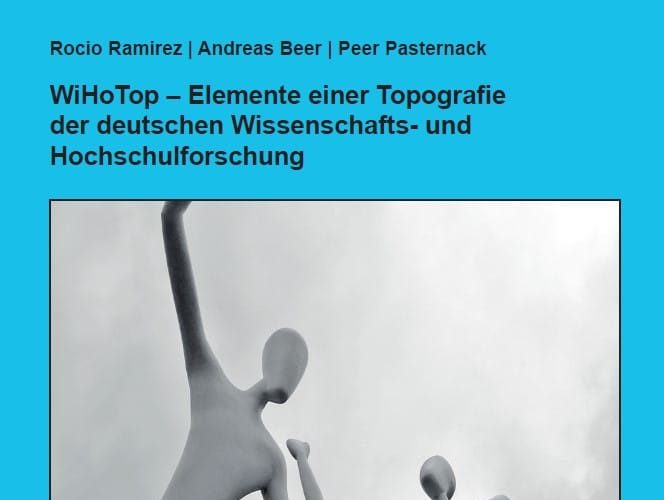The old year ended and the new one started with me being immersed in work. Working on two projects and simultaneously on various publications left me no time to either sneak in the obligatory self-congratulary note about my prowess in posting on this blog (seven post in 2021 means sub-standard … better that I haven’t mentioned it) or start a new topic.
Yet, the extra work starts to bear some fruits, with one of the publications just fresh off the printing press. It is a report disguised as an extremely long journal article. At seventy-five pages, no less, colleagues of mine have created a topography of the German science and technology studies (STS) field, combined with the field of higher education research. And I threw in a few pence of wisdom as well, making me co-author.
In more accessible words: The longish article is the result of a contract job for the German Federal Ministry of Education and Research. They hired us to provide data for an update of their website which aggregates the profiles of central professors and academic staff from STS and higher education research in Germany. Sad, yet predictable fact: I didn’t qualify.
Having provided them with the info they needed, we realised that we had enough data on our hands to carve out something more than just a mere update of a website. Hence, the idea for an article started to germinate at the end of 2021, and with new ideas piling up, we needed some good three months to put all the stuff together.
In the end, my colleagues did a great job in compiling and analysing data sets about who works in the fields of STS and higher education research (age, gender, academic career, research foci etc.) and how these folks work (tenured, fixed term or not, at a university of college of applied sciences, in a designated department or adjacent disciplines like sociology etc.). For this, they did not only dig into data sets, but also got in touch with the researched objects themselves (wow, crazy social sciences!) by putting out an online questionaire and organising a workshop with some experts in the field.
The result is a worthwhile read, as it seems to be the first attempt in almost a decade to unite the two fields of STS and higher education research in an overall topography. It also seems to be the first to not focus almost exclusively on professors, but takes into account what scholars on other professional levels do and –last, but definitively not least — includes researchers specialising in didactics on par with other scholars if they qualify via their publications.
What the article shows in its conclusion is not extremely new, but quite worrying: People in both fields (or, to be precise: the field of higher education research and the discipline of STS) are often working on a non-tenured basis, financed by project-related funding which all too often peters out before all work (let alone qualifications) can be wrapped up properly. Hmm, that sounds eeringly familiar.
Of course, the study highlights a lot more: the hottest research topics according to the aforementioned questionnaire, the top journals the scholars publish in, influential texts of the field, the standing of teaching vs. research vs. third mission activities etc.
Anyone interested can obtain a free copy on the website of the journal die hochschule under this link . Alas, as is usually the case with publications from the institute, it is only available in German. To change that is another of the long-term goals I’ve set myself for 2022.

